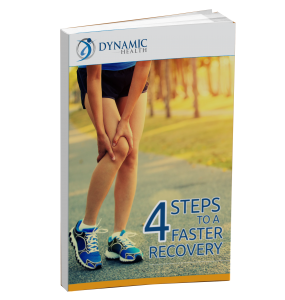This is true of everything. Including exercise. Although exercise is a requirement for good health, too much of it (for a particular individual, at a certain time) can turn something that is usually healthful into something harmful.
Exercise is a stress. In normal circumstances, in the right dose, it is a positive stress that elicits the ‘Stress Response’ ( or the ‘fight or flight’ response) from the body leading to adaptation; building stronger muscles, better oxygen carrying capacity etc. But, too much stress overwhelms the body’s ability for adaption which can lead to problems.
Put simply, overtraining, is stressing the body to greater degree than to what it can adapt.
This is usually associated with high level athletes when pushing themselves “to the limits” but it can also happen to non-athletes. If you’re chronically ill, sleep deprived, injured or restricting calories you too may be at risk for overtraining.
This is because, like exercise, these factors are all “stressors” on the body and they evoke the same stress response. Whatever the stress; be it pain, financial worry or an inflammatory diet, extra demand is placed on the body’s stress resources which means you have less left to deal with the demands of exercise. The more stressors you have in your life the less you can push yourself with exercise before you break. This is another reason why exercise needs to be specific to you, your circumstances and your goals.
Below is a list of common sign and symptoms of overtraining:
1. Muscle and Joint pain

2. Insomnia and altered sleeping patterns
3. Fatigue/ lethargy
4. Decreased cognitive function/ brain fog
5. Infections and other illnesses
6. Anxiety/ depression
7. Decreased performance
8. Decreased recovery
9. Reduced motivation to train
10. Low libido
11. Amenorrhoea in woman
12. Decreased resting heart rate and blood pressure
However, most of these signs and symptoms don’t kick in until it’s too late i.e. you are already in an overtrained state. But there are methods to track the effects of stress on your body…
Heart rate variability (HRV), measures the variance in the time between heart beats (this is not the same as heart rate which measures the speed of heart beats – the number of beats per unit of time). HRV gives a measure of the balance of the sympathetic nervous system (which controls the stress response) Vs the parasympathetic nervous system (which controls the “rest and digest” system – which opposes the stress response). Measuring the change in this balance over time indicates how much stress you are under, how well you are adapting to this stress and ultimately if you are, or approaching an overtrained state.
For more information on optimising your recovery, including your sleep and nutrition, download the free ‘4 Steps to a Faster Recovery eBook’

What helps you most to recover? Leave a comment in the section below…
© 2025 Dynamic Health. Powered by Oncord
Leave a Comment